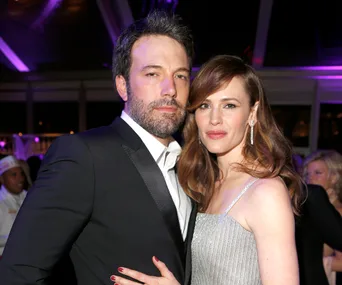When divorce coach Naomi Douglas tells people what she does for a living she almost always gets the same response: “You must be busy.”
Like the wedding planner and life coach of the nineties, divorce coaching is one of those job titles that provokes a scoff and an eyebrow raise from the unacquainted, but it’s a growing trade and the more you think about it, the more it makes sense.
With around one in three marriages ending in divorce in Australia, Naomi will have almost 100,000 new potential clients before the year is out. It’s no wonder US counsellors, mediators, therapists and family lawyers are flocking to reinvent themselves professionally and relaunching their careers as divorce experts.
“I certainly have no shortage of clients,” she says.
With a background in relationship counselling, Naomi set up shop following her own divorce seven years ago. Faced with such a serious, complicated situation, where so much could go wrong, Naomi realised she could do with some support, but didn’t know where to turn.
“You’re in a highly emotional state and you haven’t been trained to have a divorce,” she says.
“You’re also dealing with some of the biggest changes you’ll ever face in terms of money and lifestyle, so there are serious mistakes that can be made.
“The fact is divorce is an important issue, it’s a growing issue and it’s shaping our society. It’s also very serious.”
With so much on the line financially and emotionally and increasing evidence that the problems that arise from divorce can have a serious and lasting impact on children, Relationships Australia counsellor Denise Reichenbach isn’t surprise there is growing guidance in the area.
Although the concept of a divorce coach is relatively new to Reichenbach — and according to her, the rest of the counselling world — she says any support available to people going through divorce can only be positive.
“Going through a divorce can feel like going through a washing machine … it doesn’t come with a manual,” she says.
Like the uptake of life coaches and other modern day gurus, Ms Reichenbach credits the emergence of more specialised coaches, like Naomi, to a greater willingness of people to seek help.
“There is still the idea that counselling is only for people that have a problem, but I think it’s definitely more acceptable now, the stigma is wearing off,” she says.
“The shame that used to come with divorce is fading as well — people are more willing to seek help with getting divorced because it’s more common, and they’re not so ashamed it’s happening to them.”
While relying on coaches may place people in a position where they are dependent on other people to solve their problems, Reichenbach argues if there was ever a situation that called for hand-holding, divorce would be it.
“It’s hard to think that there is such thing as a ‘good divorce’, but there are definitely common mistakes that a coach or counsellor can help couples avoid to make the rollercoaster ride less rocky,” she says.
Naomi says her main role as a divorce coach is not to babysit or lecture the individuals (and less often, couples) who seek her services, but to stop them from making mistakes — often the same ones that have led to the destruction of their relationship — and to help them get the most positive outcome from an undeniable stressful and potentially damaging situation.
“Divorce can be very destructive but it can also be a big opening to address those destructive things that have developed in a troubled relationship,” she says.



